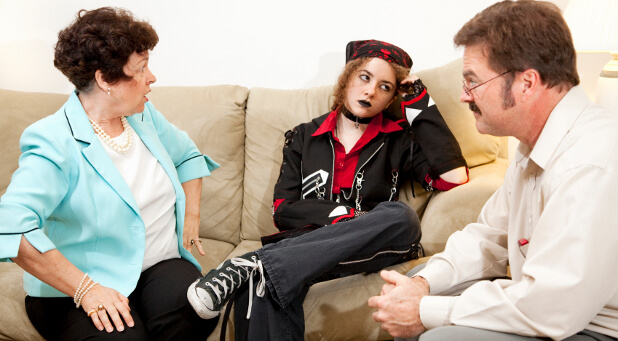Everything seems so perfect the day of a wedding. There is dancing, celebration and the dream of a wonderful life together. Everyone expects their marriage to last forever.
Having a relationship that lasts is hard and takes work. People get hurt, problems fester or perhaps someone wanders into the arms of another. No one expects that divorce will find their marriage—their home. However we have all seen the statistics. It is brutally painful to see a marriage end, let alone experience one. The situation is intensified when kids are involved in the equation.
Children experience the most pain in a divorce. They have no control over anything and have little understanding of the why it is happening. It’s confusing, complicated and difficult to explain. The intent here is not to debate whether or not divorce is ever appropriate, but how to explain divorce to a child.
Be Together
This discussion needs to happen all together. Make sure everyone is present. Anytime parents are not unified, it creates anxiety in children. Think back to when you were a child and how you felt anytime your parents got into a fight. Obviously, a divorce brings that anxiety to its highest state because their worst fears are playing out.
Being on the same page and showing respect to one another as you explain what is happening will be helpful. Be sure to coordinate what should be said and not said. It may even be good to write down talking points. Both parents should talk, not just one.
No Villains
This is a time when you need to put your hurt feelings aside, regardless of who cheated or who did what to who. You can deal with all of that one-on-one. The focus needs to be on the children and what you can communicate to stabilize the situation. Any negative statement or attitude about your ex-spouse (or soon-to-be) throws the children in the middle—exactly where you need to keep them from being. Your ex-spouse may be a villain to you, but they are a loved one to your kids.
Reassurance
Their world is being jarred, so they will need a lot of reassurance. In many ways, it is like a death in the family. A strong fear of how life is going to change will hit them. Assure them of your love for them and how that will never change. They may blame themselves or a sibling. Make sure it is clear to them that none of this is their fault. Also, reassure the areas of their life that will not change (possibly living in the same place, same school, etc.). The most important thing they need to know is that they still have two parents who love them and will take care of them.
Details
The younger they are, the less details they will need. However, you want to be prepared with a game plan of what details you want to communicate and what can wait until later. You don’t need to be detailed in the causes of your divorce. Keep it simple with some general concepts, understanding that younger kids are going to be more black and white.
Tweens will probably ask the most questions while teenagers are more aware and will probably have seen it coming. Regardless of the age, it is still painful and hard to understand. You don’t need to cover it all with one talk.
There will be unavoidable, ongoing pain from a divorce. It’s a difficult reality. Being unified as much as you can be will go a long way in providing some sense of stability. Make every effort to achieve it for the sake of the children.
Related Resource: “10 Ways to Stay Connected to Your Kids After Divorce“
Sound off: What other ways can parents reduce the pain of divorce for the kids? Huddle up with your kids and ask, “What qualities do you want in a husband or wife someday?”
© 2014 All Pro Dad. All Rights Reserved. Family First, All Pro Dad, iMOM, and Family Minute with Mark Merrill are registered trademarks. Used with permission.
For the original article, visit allprodad.com.















































